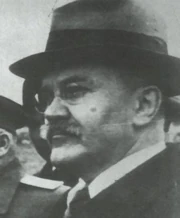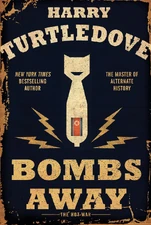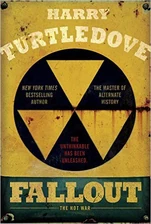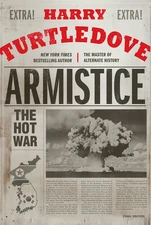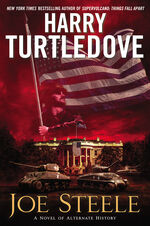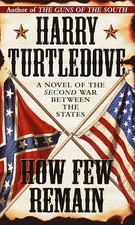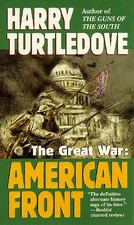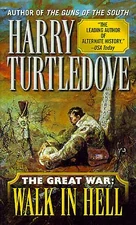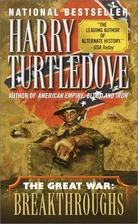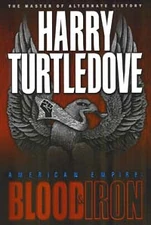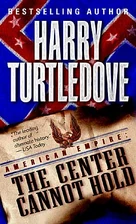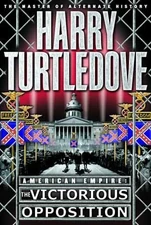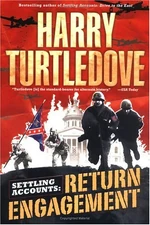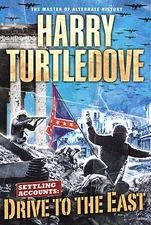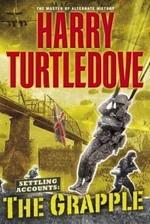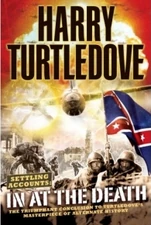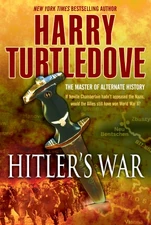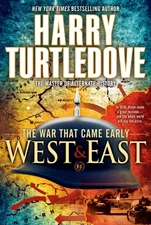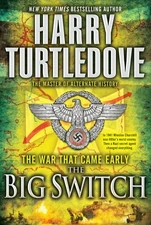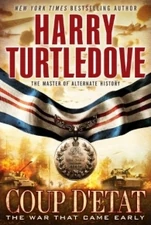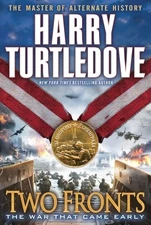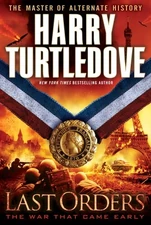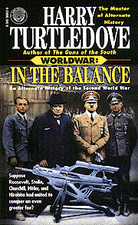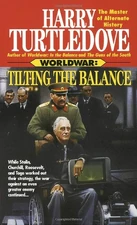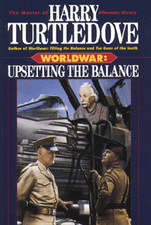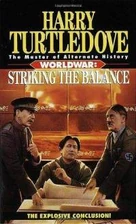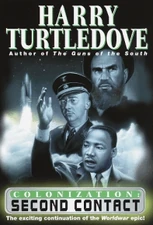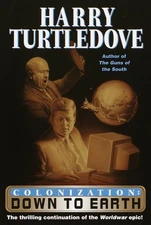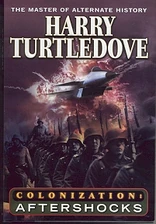| ||||||||||||||||||||||||||||||||||||||||||||||||||||||||||||||||||||||
Vyacheslav Mikhaylovich Molotov (9 March 1890 – 8 November 1986, born Vyacheslav Mikhailovich Skryabin), Soviet politician and diplomat, was a leading figure in the Soviet government from the 1920s, when he rose to power as a protégé of Joseph Stalin, to 1957, when he was dismissed from Presidium (Politburo) of the Central Committee by Nikita Khrushchev. Molotov positions of diplomacy for much of that time, eventually become the Foreign Commissar of the Soviet Union, holding the position from 1939 through 1949, including World War II. He lent his name to a non-aggression pact forged between the USSR and Nazi Germany in 1939.
Molotov fell out of Stalin's favor in 1949, losing the Foreign Commissar position and being gradually frozen out of Stalin's inner circle. Upon Stalin's death in 1953, Molotov nonetheless remained a staunch and vocal supporter of Stalin until his own death in 1986.
Molotov was known for his ability to suppress any expression of emotion in diplomatic negotiations.
Vyacheslav Molotov in The Valley-Westside War
In an alternate where a nuclear war erupted in 1967, Vyacheslav Molotov was the Soviet Union's representative to the International Atomic Energy Agency well into 1967.
Liz Mendoza discovered this fact while reviewing old periodicals. In the home timeline, Molotov had been indeed appointed to the IAEA in 1960, but was removed from that position (and from all other public positions) and expelled from the Communist Party in 1961. Her parents realized Molotov's continued presence at the IAEA in this alternate meant its "break-point" was before 1967. This fact also suggested that the Soviet leadership had been more hardline than it was at that point in the home timeline, and so the Soviet Union was probably responsible for starting the war.
Vyacheslav Molotov in The Hot War
President Harry Truman and his press secretary Stephen Early reminisced about Vyacheslav Molotov in January 1951. Truman remembered that, after one of his meetings with Molotov, Molotov told him that no one had ever spoken to him the way Truman had. Early agreed that Molotov was a difficult man.[1]
- This article or subsection is a stub because the work is part of a larger, as-of-yet incomplete series.
Vyacheslav Molotov in Worldwar
Vyacheslav Molotov was one of the central figures immediately before, during, and after the Race Invasion of Tosev 3. A negotiator infamous for his ability to keep an absolutely neutral countenance, Molotov went from Foreign Commissar of the Soviet Union during the reign of Joseph Stalin to succeeding Stalin as General Secretary of the Communist Party.
The Race Invasion
In this capacity he was responsible for negotiating with his country's friends and foes. In 1939, he helped forge a non-aggression pact with Germany. In 1941-2, he negotiated with the Allies after Germany attacked the Soviet Union. Then in 1942, with the arrival of the Race, Molotov found himself negotiating with all human powers actively fighting the Race, as well as with the Race itself.
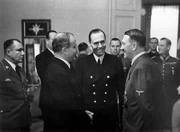
Molotov meets with Adolf Hitler and Joachim von Ribbentrop in Berchtesgaden in 1942 to discuss resistance against the Race
Shortly after the invasion, Molotov traveled to Fleetlord Atvar's bannership, the 127th Emperor Hetto, where he was the first to inform Atvar that humans did not organize themselves politically into empires only, but into a variety of other political systems little understood by the Race and collectively referred to as not-empires. He relished the opportunity to horrify Atvar by admitting that his government had come to power by murdering an emperor, a crime of unspeakable horror to the Race (though it was attempted, and failed, on one occasion in their history).
Molotov also attended Big Five meetings in London, met Adolf Hitler at Berchtesgaden, attended an Anglo-American-Soviet summit in New York City, and held a clandestine meeting with Joachim von Ribbentrop in the North Sea. As vice-chairman of the War Commissariat, he also played a role in the planning of the USSR's strategy in resisting the Race within its own territory.
The Peace of Cairo
Molotov represented the Soviet Union at the Peace of Cairo in 1944, when Atvar agreed to treat with representatives of the Big Five diplomatically. Molotov generally was as aggressive as possible in assuring a favorable agreement for his country, but he did not oppose the Race's colonization of Poland for fear that, if left in human hands, this might precipitate another war between his nation and Germany. To this end he also opposed his German counterpart Ribbentrop's attempts to force the Race to yield Poland to Germany.
General Secretary
When Stalin died, Molotov became General Secretary of the Soviet Union, a position he held when the Colonization Fleet arrived in 1962. He served in that capacity for many years, despite an attempt in 1963 by NKVD chief Lavrenti Beria to launch a coup against him. Molotov was saved only by Red Army Marshal Georgy Zhukov and NKVD agent David Nussboym. For several years, Molotov was indebted to Zhukov and often felt he continued to serve as General Secretary only at the general's sufferance. However, though Molotov feared Zhukov might attempt to supplant him, the latter never did.
Molotov supported Mao Tse-Tung's resistance to the Race in China, though not to the full extent Mao wanted him to. Molotov also arranged for an attack on Australia that consisted of missiles armed with warheads full of ginger, which caused Lizards under the blast radius to become both inebriated and sexually active. As Fleetlord Atvar was present at the time, this created a small scandal. The Soviet Union's role in this attack - more a prank, though it was useful as a test of Australia's anti-missile defenses - was never discovered.
In 1965, Molotov was approached by German Führer and Chancellor Heinrich Himmler (through Ambassador Paul Schmidt) about attacking Poland, expelling the Race, and dividing the country. Himmler was quite convinced that the Race did not have the will to fight back. Molotov quickly realized that Himmler was operating from his Nazi ideology rather than from facts. He knew that the Race had the raw power to defeat such an invasion, and punish the invaders. Moreover, Molotov had not changed his position a generation earlier at Cairo - reinforced in 1962 when the Colonization Fleet arrived - that it was preferable to have the Race on the USSR's eastern border rather than the Germans. He declined the offer, and made sure that news of the meeting got back to the Race.
Himmler's sudden death seemed to have resolved the crisis, until Ernst Kaltenbrunner was announced as his successor. For Molotov, this was terrible news, as Kaltenbrunner was just as rabid a Nazi as Himmler. Kaltenbrunner renewed Himmler's offer, and again Molotov declined.
The Race-German War of 1965 and the Treaty of Moscow
Almost immediately, Kaltenbrunner launched an invasion of Poland. The resulting war proved a disaster for Germany which vindicated Molotov. The use of explosive-metal bombs by both sides in Poland did environmental damage to Soviet territory. The crippling of Germany did much to advantage the Race, and in turn disadvantage the Soviet Union, which now had to face the Lizards as the dominant force in Europe, though they had previously had only a peripheral presence on the continent.
Molotov did play a part in bringing the war to an end, when Ambassador Schmidt, now acting under Walter Dornberger (who succeeded Kaltenbrunner, a casualty of the war) asked Molotov to broker a peace. Molotov brought Schmidt and the Race's ambassador to the Soviet Union, Queek, together in the Kremlin and worked out the terms of the Treaty of Moscow.
The Warren Crisis
Later, when relations between the Race and United States suddenly and unexpectedly soured (the Race had learned President Earl Warren had ordered an attack on the Race's Colonization Fleet in 1962 that killed millions of Race civilians, though Molotov was not aware of it at this time), Molotov, fearful that the USSR could become the sole free power on the planet, reluctantly made it clear to the Race that he would stand with the U.S. if the Race attacked it. Fear of the possible damage both countries could do to the Race in such a war helped spur the Race to compromise. Molotov attended Warren's funeral in Little Rock and shared his condolences with Warren's successor, Harold Stassen.
Death and Legacy
Prior to Molotov's death in 1986, he was the last surviving leader of the first generation of Tosevites to deal with the Race. The Red Rocket Force named its first interstellar starship the Molotov in his honor, and a great compliment was paid to the late Commissar in 2031 when former Fleetlord Atvar, recalled to Home, hoped that the starship would not cause the Race as much trouble as its namesake had.
Vyacheslav Molotov in The War That Came Early
Vyacheslav Molotov was a prominent figure within the Soviet Union and without. For example, the Molotov cocktail was a last resort weapon used by the Spanish Republicans during the Spanish Civil War. The Spanish Nationalists christened the weapon "Molotov cocktail" to draw attention to the fact that the Republicans had strongly communist leanings and received substantial support from the USSR.[2] Prominent Republican leader (and fervent communist) Magdalena Flores went by the nickname La Martellita; both Martellita and Molotov come from their respective languages' words for Hammer.[3]
Vyacheslav Molotov in Joe Steele
Vince Scriabin (1890-1953), known to everyone as the Hammer, was a close ally of United States President Joe Steele, and was instrumental in the so-called "Pain Trust" during Steele's 20-year presidency.
Like Steele, Scriabin's family were immigrants from the Russian Empire. The two had met in Fresno. During Steele's bid for the Democratic nomination, Scriabin acted as Steele's field-boss.[4] On the second day of balloting, as Steele's primary rival, Governor Franklin D. Roosevelt of New York, seemed to be pulling ahead, Scriabin arranged for an arsonist to set a fire in the Executive Mansion in Albany.[5] Roosevelt, his wife, Eleanor, and several other mansion staff were killed in the fire.[6] Scriabin's phone call was overheard by reporter Charlie Sullivan. Scriabin did not seem to have known this; in the years that followed, Sullivan did not meet the same fate a number of Steele's adversaries and critics. Conversely, Sullivan was not absolutely certain that Scriabin was actually ordering the fire, as Scriabin was ambiguous in his choice of words.
With Roosevelt gone, Steele won the nomination[7] and then the Presidency. Scriabin became one of Steele's aids. He was generally the least approachable, and did the dirtiest work at Steele's behest, earning his nickname "the Hammer". For example, it was Scriabin who alerted Charlie Sullivan to the pending arrest of the Supreme Court Four in February, 1934.[8] And when Sullivan's brother Mike wrote an article about the fire that killed the Roosevelts a few weeks later, an article that implied that the fire may have been an arson, and pointed out that Steele benefited from Roosevelt's untimely death, it was Scriabin who pulled Charlie Sullivan into the White House and demanded he get his brother in line.[9]
Scriabin remained indispensable to Steele for Steele's entire 20-year presidency. As Steele's chief aide, Scriabin attended Steele's first meeting with Winston Churchill in 1941, the Basra Conference, and the Wakamatsu Conference in 1946. Scriabin developed a reputation as being as vindictive and calculating as Steele, and was the one most likely to support Steele's destructive impulses. His only real rival in this was J. Edgar Hoover, the Director of the Government Bureau of Investigation.
When Steele died on March 5, 1953, his successor, John Nance Garner, got resignation letters from the entire Cabinet as a matter of form, including Lazar Kagan, Stas Mikoian and Scriabin, and as well as speechwriter Charlie Sullivan. However, once they'd signed the form letters, Garner announced that he accepted Kagan, Mikoian and Scriabin's resignations effective immediately. Sullivan he let stay on. While both Kagan and Scriabin were indignant, Mikoian had the presence of mind to ask why Garner was doing this. Garner admitted that he was angered by the shabby treatment he'd received from the three. He offered them ambassadorships to soften the blow, with Mikoian going to Afghanistan, Kagan to Paraguay, and Scriabin to Outer Mongolia. He kept Charlie Sullivan around because Sullivan had in fact talked to him and even drank with him over the past 20 years.[10]
While Mikoian and Kagan left the country for their respective assignments, Scriabin had no interest in going quietly to Outer Mongolia. When Garner also secured the resignation of the entire cabinet, save for Secretary of State Dean Acheson and Secretary of War George Marshall,[11] Scriabin saw an opportunity in the vulnerable line of succession, and began to tap into the remaining clout he had in the Senate.[12] Subsequently, Acheson died in a plane crash. A week later Marshall was about to give a speech, when he turned blue and keeled over. Despite there being several doctors on hand, Marshall could not be saved.[13]
Garner figured out quickly that someone was moving against him, which he confided in Charlie Sullivan. He pointed out that the Presidential Succession Act of 1886 made the Secretary of State the successor if the President died and the position of Vice President was vacant. Sullivan accused Scriabin, and told Garner about Scriabin's phone call at the 1932 Democratic Convention. Garner listened, and decided that Scriabin wasn't the only person who make such deaths happen. Sullivan then reminded Garner of another likely enemy: Hoover of the GBI. He suggested that Garner replace his guard detail, almost exclusively GBI agents, with soldiers. No sooner had Garner resolved to do all of this than he was informed that the House had introduced legislation to impeach Garner for high crimes and misdemeanors. Garner suspected Scriabin's hand at work again.[14]
Garner took steps to try to slow down the impeachment process. He issued an executive order eliminating the restricted zone for former wreckers, an act criticized by Hoover. Moreover, the leaders of the impeachment drive were unmoved.[15] Scriabin never saw the final result of his machinations; while crossing a street, he was hit by a car and killed. As Scriabin had not been in a crosswalk, and as the driver was not intoxicated, no charges were filed.[16]
Literary comment
In the short story, Scriabin is only called the Hammer. Upon Steele's death in the short work, John Nance Garner orders the execution of the Hammer and J. Edgar Hoover. The Hammer orders the execution of Garner and Hoover. Hoover orders the execution of Garner and the Hammer, and ultimately triumphs. This is in contrast with the novel, in which the three-way battle is far more "legalistic", with Scriabin instead killed in a car accident.
Vyacheslav Molotov in Southern Victory
"The Hammer" was the nickname of one of the leaders of the Reds of Russia after the Great War. In 1925, he served as second-in-command to a general who called himself "Man of Steel" in a battle at the city of Tsaritsyn during the Russian Civil War.[17]
Literary comment
The fates of Steel and Hammer are not revealed, however the Romanov dynasty seems to have eliminated all opposition by 1930.
References
- ↑ Bombs Away, pg. 61, ebook.
- ↑ The Big Switch, pg. 157., HC.
- ↑ West and East, pg. 407, HC.
- ↑ Joe Steele, pgs. 1-5
- ↑ Ibid., pgs. 16-17.
- ↑ Ibid, pgs. 18-21.
- ↑ Ibid., pgs. 22-27.
- ↑ Ibid., pg. 80.
- ↑ Ibid., pg. 96-97.
- ↑ Ibid., pgs. 416-417.
- ↑ Ibid., pg. 424.
- ↑ Ibid.
- ↑ Ibid.
- ↑ Ibid., pgs. 424-427.
- ↑ Ibid., pg. 427.
- ↑ Ibid. pg. 428.
- ↑ The Center Cannot Hold, pg. 92, HC.
| Titles and Succession | |||||||||||||||||||||||
|---|---|---|---|---|---|---|---|---|---|---|---|---|---|---|---|---|---|---|---|---|---|---|---|
| |||||||||||||||||||||||
